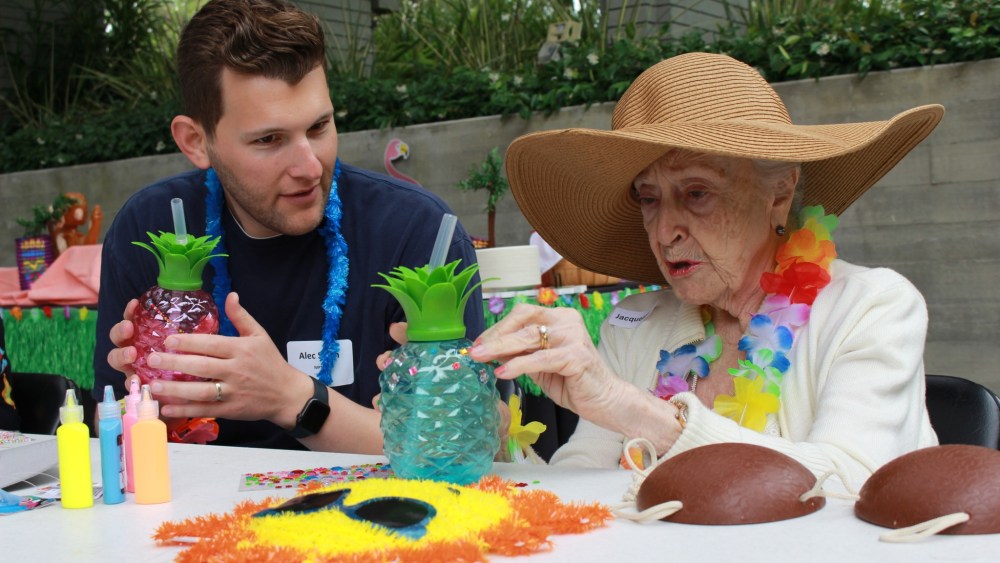One hundred years after Variety first reported on the Motion Picture and Television Fund’s mission to support industry workers, the foundation is preparing for its second act. And it couldn’t come at a more important time. As job losses continue and production declines, “more and more people are going to struggle,” worries Courtney Bailey, MPTF’s chief development officer.
That’s why MPTF Chairman Bob Beicher is overseeing the second act. A major fundraising effort to take the venerable organization into its next century includes the chance to name one of the historic bungalows on the Woodland Hills Wasserman Campus for $250,000 or $50,000 a year for five years.
“It’s an opportunity to say, ‘I’m going to put my name here,'” Beicher explains. A donor could think, “I want someone walking[on campus]to see what I’ve done, and I hope it inspires others,” or they could think, “This person really mentored me in life and was really kind and empathetic at a special time in my career.” In fact, the Beitchers named their bungalow after their former colleague and mentor Jim Henson. Jim Gianopoulos is among those who have already signed on to the naming rights.
Of course, a meaningful gift doesn’t have to be $250,000. “This is an opportunity for industry members to participate in sustaining the MPTF at all levels,” Beitcher said. “A recurring gift of $10 a month or a recurring gift of $50,000 a year. We’re seeing that pass the baton from generation to generation.”
This tradition has continued for generations in Hollywood. In 1926, Variety magazine reported that an actress was evicted by her ex-husband and the Motion Picture Relief Fund came to the rescue to save her from eviction. Years later, a Daily Variety article stated that actor Joel McCrea’s understudy and his wife died within a short period of time, and when McCrea went to pay for the funeral, he “discovered that the Motion Picture Relief Fund had paid for all the expenses.” McCrea retaliated by asking Samuel Goldwyn to change the filming schedule in order to make the broadcast profitable for the foundation.

A 1936 Variety article about Joel McCrea’s replacement receiving assistance in what became the MPTF.
It was that sense of solidarity that has united the MPTF since it was formally established in 1921 (Variety magazine began reporting on the Motion Picture Relief Fund a few years after it became independent from the Actors Fund). Fundraising has always been a big need. A 1928 article reported that Hollywood heavyweights such as Cecil B. DeMille, Mary Pickford, D.W. Griffith, and Douglas Fairbanks were among those who pledged not to forget the organization. Meanwhile, an article just before the stock price crashed the following year said the fund was in “urgent need of capital to pay operating expenses.”
But now is the time to remind young people in particular that they, too, may need the foundation’s services one day, and that they should join Hollywood’s long-standing support of the foundation. Previously, this was done automatically through payroll pledge deductions, but this is no longer the case now that studios have fewer staff.
“When we entered the industry, we all knew about the pay promise,” Beitcher says. “We are now relying on more senior people in the industry to be our next generation advocates with whom they work, and we are relying on this next generation group to share information about the MPTF with their colleagues.”

Colman Domingo (right) visits residents on the Wasserman campus.
Supporters such as Ike Barinholtz, Colman Domingo, Adam Scott, Yvette Nicole Brown, Kathryn Hahn, McG, Christopher Nolan, and Emma Thomas are also actively disseminating information and hosting events.
Beitcher said the organization is much more financially stable than it was when the coronavirus hit hard and an emergency appeal was issued in 2023. “But we need to build reserves and fortify ourselves for the next wave of demand,” he explains.
And that need is likely to continue to grow, with the number of people supported by the MPTF doubling in the past decade.
“We have seen a significant increase in the need for our services,” Bailey said. While many consider residential cottages and studios for industry retirees to be the core of MPTF, numerous other safety net programs serve all ages, from financial assistance to food insecurity, insurance and medical assistance.
“It’s a tough climate for a number of reasons, both across the industry and globally,” Bailey acknowledges. “There are a lot of challenges, but there are also a lot of opportunities. There are a lot of people who are doing very well. We really need their help.”
“Please don’t forget about us,” Bailey pleads on behalf of the MPTF. “That way we can move forward with sustainability and confidence, growing our services and continuing to support people. We just need people to pitch in.”

